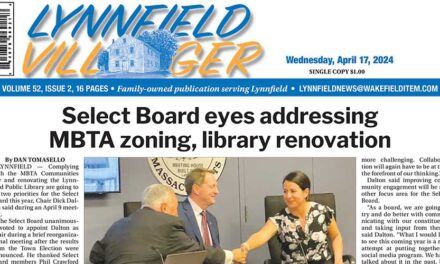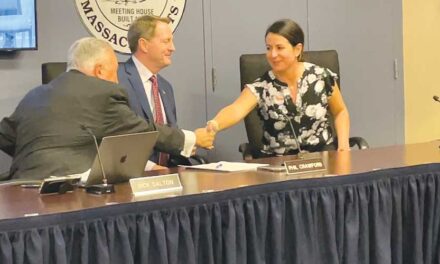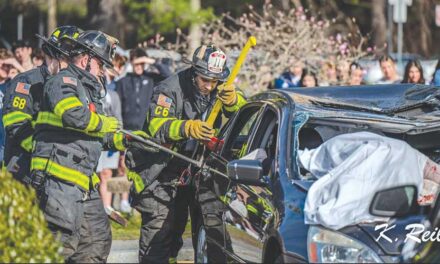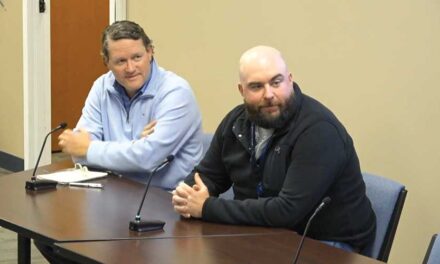By MAUREEN DOHERTY
LYNNFIELD — On the heels of an allegation of an Open Meeting Law (OML) violation against two selectmen and the former town administrator pending in court, two new OML complaints have been filed by members of the board against one another.
Town Counsel Thomas Mullen appeared before the selectmen Feb. 4 requesting that the board direct him to respond to the first complaint and conduct interviews with those named in it. This complaint was filed with the state Attorney General’s office on Dec. 4 by Vice Chairman Phil Crawford against fellow board member Tom Terranova.
“I don’t mean to suggest that there either should or shouldn’t be a lot of public discussion about this. I’m here to request that you publicly determine whether to delegate to me the responsibility of investigating and reporting on this matter,” Mullen said.
“The Open Meeting Law requires that when a complaint is filed with respect to a board or board members that the board take action, and that action can consist of nothing, if it determines that there really has not been a violation, or some kind of remedial action if they concluded that there has been,” Mullen explained.
In the past, some OML violation allegations were placed on the board’s agenda for a formal vote by the selectmen to delegate to town counsel and other times former T.A. Bill Gustus would direct Mullen to handle it, as was the case with the Dec. 3 complaint filed by local attorney Michael Walsh that eventually “morphed” into the Three Registered Voters case currently pending in Essex Superior Court, Mullen said.
In that case, Mullen said, “it’s been contended that the selectmen should, in December, have acknowledged in open session that this complaint existed and if they were going to delegate it to me to investigate, they should have had a vote to do so.
“Without suggesting that there is or there isn’t merit to that contention, I always like to deprive the other side of oxygen, so lest there be a further complaint, I think it would be wise tonight and in the future, that the board publicly acknowledge the receipt of any Open Meeting Law complaint. And if you wish me to investigate it and deal with it, I would be honored to do so, but I think a formal vote to delegate would be in order,” Mullen said.
Crawford made a motion to direct Mullen to investigate his complaint, Terranova offered the second and it passed 3-0.
Terranova subsequently asked whether Mullen would make the same request of the board to investigate the other OML complaint, which he filed on Feb. 3 with the AG’s office against both Crawford and Chairman Dave Nelson.
Mullen had planned to wait to make that request at the board’s Feb. 9 meeting because Terranova’s complaint was filed just the day prior to the Feb. 4 meeting, after the board’s agenda had been posted. The OML requires agendas to be posted on all matters a board can “reasonably expect” to discuss at a public meeting 48 hours in advance of that meeting.
Mullen said “it would be a real irony” to violate the OML in making a request to investigate an allegation of an OML violation. Town Administrator Jim Boudreau said Terranova’s request would be posted on the Feb. 9 agenda. Boudreau clarified that action on Terranova’s complaint was not under a time constraint to take place prior to their next scheduled board meeting so they did not have a compelling reason to waive the 48-hour notice by voting on the matter Feb. 4.
As it turns out, the Feb. 9 meeting was cancelled due to Monday’s snowstorm. As the Villager was going to press, the board posted a meeting notice for Thursday, Feb. 12 at 8:15 a.m. for the sole purpose of delegating Terranova’s OML complaint for investigation and response by town counsel. A date for the remainder of the Feb. 9 agenda had not been set.
The allegations
The violation Crawford cited in his complaint allegedly took place on Nov. 19 while Crawford, in his capacity as vice chairman of the board, was conducting a scheduled meeting with several residents of the town as well as Police Chief Dave Breen and former T.A. Gustus “to discuss traffic enforcement issues in their neighborhood.”
Just prior to the start of the 10 a.m. meeting, Crawford’s complaint states: “Terranova and two associates entered the room and sat down.” Since a quorum of the three-member board consists of two members, Crawford states he “informed Mr. Terranova that his presence in the room is a violation of the Open Meeting Law and he should leave the room,” but Terranova “refused” and indicated that he would not participate but just take notes. Crawford sought the opinion of Gustus, who said he thought it would be okay if Terranova “did not speak or participate in any way.”
Crawford’s complaint further states that 45 minutes into the meeting Terranova raised his hand, but he did not recognize him. Subsequently, Crawford states Terranova started asking questions without being recognized. While Breen was responding to one of Terranova’s questions, Crawford adjourned the meeting. “He intentionally violated the Open Meeting Law and ignored the protocol set forth for the meeting,” Crawford’s complaint states.
In Terranova’s OML complaint against both Nelson and Crawford, he alleges his fellow selectmen violated the OML on Jan. 5, the same night that “all three selectmen and the Town Administrator were served with a subpoena to appear at Essex Superior Court on Jan. 15, 2015 at 2 p.m. by Attorney Mike Walsh and an associate.”
Terranova’s complaint alleges that after this meeting had been adjourned, while he was gathering his paperwork and preparing to leave the meeting room, he overheard both Crawford and Nelson discussing their subpoenas.
“Phil Crawford made statements about the receipt of the subpoena, how it is common place in his business to receive subpoenas on behalf of clients and continued on discussing the subpoena and its effect to the town with David Nelson and William Gustus,” Terranova’s complaint states. He added, “The three continued to discuss the subpoena as I packed my briefcase and left the meeting room. This was clearly a deliberation between the parties mentioned. This discussion should have occurred during the public Selectmen meeting and not in private between the three parties mentioned.”




